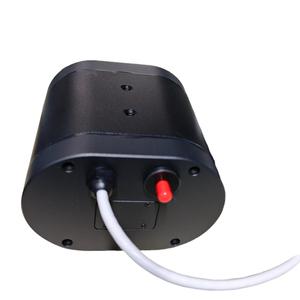Exploring Security Camera Uses Cellular Technology
Security cameras have evolved significantly over the years, incorporating advanced technologies to enhance surveillance and monitoring capabilities. One such innovation is the integration of cellular technology in security cameras. These devices utilize cellular networks to transmit data, providing numerous advantages over traditional wired systems. In this article, we will delve into the various aspects of security cameras that use cellular technology, exploring their types, functions and features, applications, and benefits.
Types of Security Cameras Uses Cellular Technology
Cellular security cameras come in various types to accommodate different security needs and environments. Here are the primary types:
- Fixed Cellular Cameras: These are stationary cameras designed to monitor a specific area. They are ideal for residential and commercial properties.
- Pole-Mounted Cameras: Designed for outdoor applications, these cameras can be mounted on poles or structures to monitor larger areas, such as parking lots or street corners.
- Mobile Cellular Cameras: Ideal for temporary installations or transportable surveillance, these cameras provide flexibility and mobility, ensuring security wherever required.
- Pan-Tilt-Zoom (PTZ) Cameras: Offering the ability to remotely control the camera's movements, PTZ cameras are adaptable for extensive surveillance and are often used in larger commercial settings.
Function and Features of Security Cameras Uses Cellular Technology
Understanding the functions and features of cellular security cameras is essential for maximizing their potential. The following highlights key aspects:
- Real-Time Monitoring: Cellular cameras provide real-time video feeds that can be accessed remotely via smartphones or tablets, allowing for continuous surveillance from anywhere.
- Cloud Storage Options: Many cellular cameras offer cloud storage, ensuring that footage remains secure and easily accessible long after it is recorded.
- Motion Detection Alerts: Equipped with advanced motion detection technology, these cameras can send alerts to users when unexpected movement is detected, enhancing security responsiveness.
- Weatherproof Design: Cellular cameras are often designed to withstand harsh weather conditions, making them suitable for outdoor installations.
- Low Light Capability: Many models come with night vision technology, allowing for effective monitoring even in low-light conditions.
Applications of Security Cameras Uses Cellular Technology
The versatility of cellular security cameras makes them suitable for various applications across multiple sectors:
- Residential Properties: Homeowners use cellular cameras to enhance security, monitor deliveries, and keep an eye on children or pets.
- Retail Environments: Retailers implement these cameras to prevent theft, monitor customer behavior, and ensure employee safety.
- Construction Sites: Cellular cameras offer construction companies the ability to monitor job sites in real-time, preventing theft and ensuring compliance with safety regulations.
- Remote Locations: In areas with limited or no access to Wi-Fi, cellular cameras provide a reliable surveillance solution, ideal for farms, open fields, and remote cabins.
Advantages of Security Cameras Uses Cellular Technology
Choosing cellular security cameras offers several advantages that can significantly improve security measures:
- Easy Installation: Unlike wired systems, cellular cameras can be set up quickly without extensive cabling, reducing installation costs and time.
- Flexibility and Portability: Cellular cameras can be relocated easily, making them a practical solution for businesses that move frequently or need temporary installations.
- Wide Coverage: With cellular technology, these cameras can cover large areas and remote locations without relying on local internet infrastructure.
- Robust Data Encryption: Many cellular cameras come with secure data transmission protocols, ensuring that video feeds are protected from unauthorized access.



















































